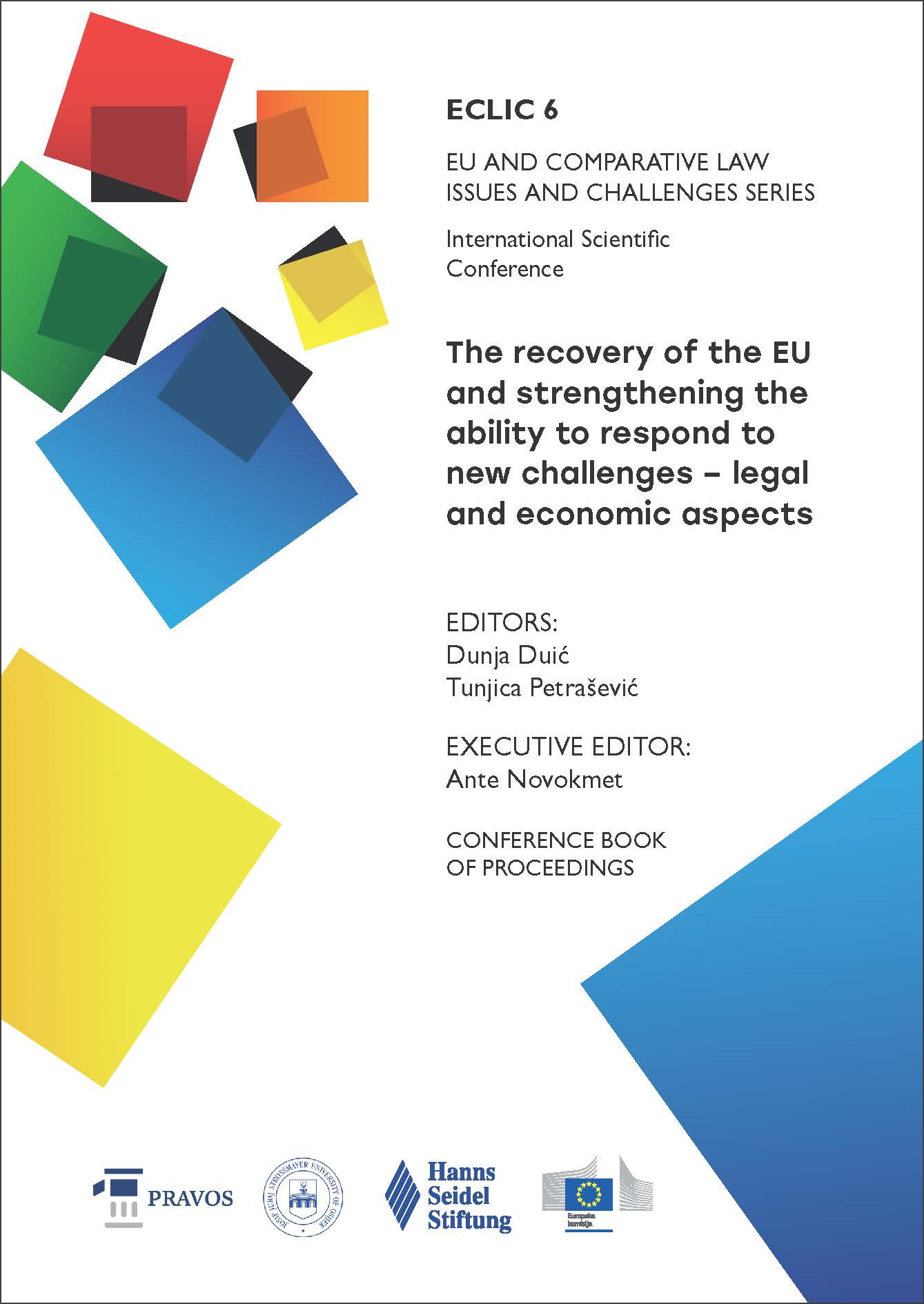NEW APPROACH TO THE EU ENLARGAMENT PROCESS – WHETHER COVID-19 AFFECTED CHAPTER 23 REQUIREMENTS?
DOI:
https://doi.org/10.25234/eclic/22433Abstract
The EU enlargement policy requires creation of the new institutional organization, alignment of legal acts, increasing capacities of administration in the candidate countries. In relation to the Western Balkans the conditionality has an increased focus on good governance criteria, particularly maintenance of the rule of law, an independent judiciary, and an efficient public administration. To address raised concerns of the EU accession process in the Western Balkans as a box-ticking exercise, the European Commission in February 2018, adopted the Credible Enlargement Perspective for an Enhanced EU Engagement with the Western Balkans’ strategy, which introduced some renewed policy objective on the future enlargement of the EU including fundamental democratic, rule of law and economic reforms. In March 2020 the Council of the EU officially endorsed Commission proposal for a new enlargement methodology that is based on grouping the negotiation chapters in clusters, based on their interconnection, which requires tangible progress in all chapters merged to a cluster. The above-mentioned introduction of a new methodology and the decisions of the WesternBalkans candidate countries to apply it, correspond in time with the ongoing Europe and worldwide struggle to overcome challenges imposed by COVID-19 outbreak. The response to the pandemic influenced on the functioning of judiciary across the world and the rule of law in general. To respond to pandemic EU members states accepted new standards in relation to judiciary which tend to be threat or suspension for fundamental rights protection and right to fair trial. Outbreak of COVID-19 revealed new trends in rule of law like limited access to the lawyer in criminal cases, use of IT tools for trials, and cancelation or limitation of public hearings. The scope and modalities of such rule of law exemptions differ across the EU member states. Introduced measures and responses shed a completely new light on the issues of relevant standards in the accession process and modality to be addressed and implemented in the candidate countries. Finally, this also triggers the issue of evaluation and assessment of the reform achievements in candidate countries by EC when measuring the progress. In the analysis of the abovementioned issues the authors assessed whether derogation of the well-established rule of law principles influenced on EU accession requirements towards candidate countries and whether they temporary changed understanding and implementation of the fundamental rights or made permanent transformations in understanding of rule of law requirements.
Downloads
Published
How to Cite
Issue
Section
License
Copyright (c) 2022 Marina Matić Bošković, Milica Kolaković Bojović

This work is licensed under a Creative Commons Attribution-NonCommercial 4.0 International License.
Authors retain the copyright on the papers published in the Journal, but grant the right of first publication to the Journal. Papers accepted for publication or already published in ECLIC of the Faculty of Law in Osijek may be published by the author(s) in other publications only with proper notice of its previous publication in ECLIC.


